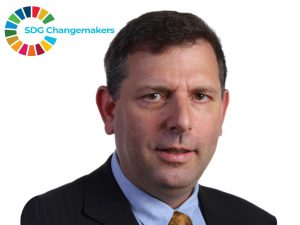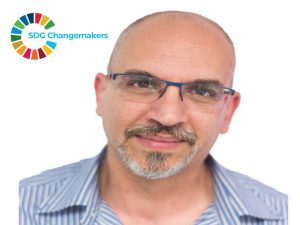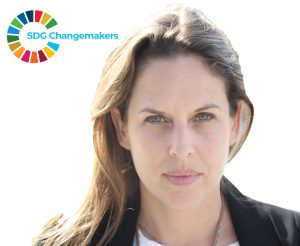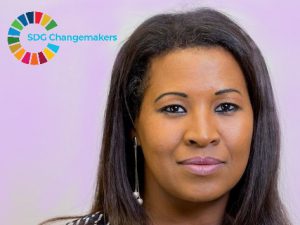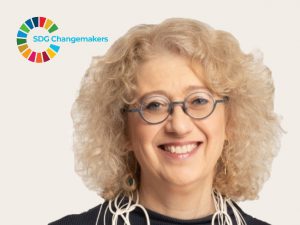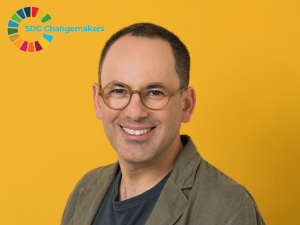Head of the International Relations Department at the Israeli Ministry of Health
SII: Please briefly describe your work
D.S: My work is to facilitate cooperation between the Israeli health system and our foreign partners in order to improve the health and quality of care for both our citizens and the international community. In this capacity, I not only learn from our foreign colleagues but also share Israeli expertise across countless fields of medicine, contributing to better healthcare worldwide and create stronger diplomatic relations for the State of Israel. My team and I achieve both of these goals through bilateral relations and in working with multilateral organizations such as the World Health Organization (WHO) and the OECD. My department is also in charge of receiving official delegations from around the world, which have the opportunity to learn from the Israeli healthcare system.
SII: Name three principle focal points of your work?
D.S: The three focal points of my work in the Ministry of Health of Israel are; improving the level of healthcare both in Israel and abroad, improving the population’s access to healthcare and using Israeli expertise to accomplish these goals while serving as a bridge to strengthen the bonds between peoples, societies and cultures.
SII: What particularly motivates you to make a difference?
D.S: I travel a lot, both alone and with my family, both as a doctor and a lover of culture and people. In my experiences around the world, I have noticed with great pride how far the Israeli healthcare system has come and how much we have accomplished across an array of medical fields in just 70 short years. Many countries I have visited, both in professional and personal capacities, have been around far longer than my home, yet I am often asked to teach about our successes. We are a small nation with very limited resources, but we are also a country that takes health very seriously and have a built a culture of caring for each other. We have managed to transition to universal health coverage and achieve top-notch health outcomes that are the envy of much of the world. In my travels, not only am I in awe of how much we as a country have accomplished, but also of the attainable and tremendous impact that we can make on a global scale by sharing our experiences.
Having spent years as a clinical oncologist and hospital manager, I understand that all healthcare systems can always do better. As such, it is my responsibility to pinpoint the countries that can help us attain a specific goal and facilitate cooperation with experts in order to better improve the Israeli healthcare system. Through this collaboration, I have already seen the difference our work can make at both at home and abroad.
SII: What positive impact do you see emerging through your activity?
D.S: Through collaboration with the OECD, the Ministry of Health introduced new metrics and transparency to our healthcare system driving each medical institution to work tirelessly to improve their outcomes. At the same time, in our work with the WHO we have developed nutritional programs and policies to encourage healthy lifestyles. Today, the Ministry is working to bring Proton-Beam therapy to Israel, following our partnerships throughout Europe and the Americas. This therapy has the potential to greatly improve care in specific cases of pediatric oncology.
SII: Which topics do countries most often request Israeli guidance?
D.S: Israel has developed in-depth expertise (out of necessity) in four major areas of medical practice. The first is health-system management. Our system is one of the most tightly controlled in the world, achieving excellent results on a shoestring budget. Further assistance is provided in the area of the global ageing population. Countries are looking to reform their healthcare systems in order to meet the anticipated demands, and they often look to Israeli model as a source of aspiration.
Similarly, our work in the field of digital health is highly sought after by the international community. In order to meet the challenges of the future, health systems globally are looking to integrate new technologies and research methodologies found within “The Start-up Nation” to learn about the new age solutions developed here.
Out of necessity, we have also developed world-renowned expertise in the field of emergency preparedness and response both in routine and crisis situations. Our field hospital was first of its kind to attain the highest level of WHO EMT certification. We host countless delegations seeking to learn from that expertise: how we manage our health system and respond to crises both conventional and non-conventional.
I would be remiss not to mention the high level of global interest in Israeli expertise in the regulation and development of Medical Grade Cannabis.
SII: How did Coronavirus fight impacted you?
More about Dr. Salmon:
2014-2018 Deputy Director, Hadassah University Hospital, Ein-Kerem, Jerusalem, Israel
2012-2014 Deputy C.E.O & Medical Director, Barzilai Medical Center, Ashkelon, Israel
2010-2012 Head, Oncology Inpatient Ward, Sharett Institute of Oncology, Hadassah University Hospital – Ein Kerem, Jerusalem
2008-2010 Head, Medical Audit Department, Israel Ministry of Health
2005-2008 Head, Outpatient Clinic, Sharrett Institute of Oncology, Hadassah University Medical Center – Ein Kerem, Jerusalem


